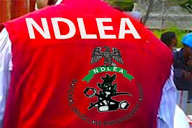NDLEA to Ban Production, Sale of Sachet Alcohol by December
The National Agency for Food and Drug Administration and Control has announced that the production and sale of alcoholic beverages in sachets and bottles smaller than 200 millilitres will be prohibited by December 2025.
The agency’s Director General, Mojisola Adeyeye, disclosed this during a press briefing in Abuja on Tuesday, noting that the decision was part of efforts to address the growing misuse of cheap alcoholic drinks among youths and drivers.
“The proliferation of high-alcohol-content beverages in sachets and small containers has made such products easily accessible, affordable, and concealable, leading to widespread misuse and addiction among minors and commercial drivers.
“This public health menace has been linked to increased incidences of domestic violence, road accidents, school dropouts, and social vices across communities,” Adeyeye said.
The announcement came after the Senate on Thursday directed NAFDAC to implement a total ban on the production and sale of alcoholic drinks packaged in sachets and containers below 200 millilitres by December 2025, insisting that no further extension of the deadline would be allowed.
The resolution followed an extensive debate on a motion sponsored by Senator Asuquo Ekpenyong (Cross River South), who expressed concern over NAFDAC’s repeated postponements of the ban despite growing public health and social concerns.
Ekpenyong reminded lawmakers that the agency had previously scheduled 2023 as the deadline before extending it to 2024, and later 2025, a pattern he said had emboldened manufacturers to continue lobbying for more time.
He cautioned that any further delay would constitute a betrayal of public trust and undermine Nigeria’s commitment to international health and safety standards.
Adeyeye, however, explained that the directive followed a Senate resolution raising concerns about the availability of low-cost alcoholic beverages in sachets, which have reportedly contributed to social and health problems.
She recalled that NAFDAC had previously entered into a Memorandum of Understanding with stakeholders to implement a phased withdrawal of the products, with earlier deadlines postponed from 2023 to 2025.
However, she stressed that the Senate’s latest resolution is final, warning that no further extensions will be granted.
She urged manufacturers, distributors, and retailers to begin full compliance ahead of the enforcement date.
Adeyeye clarified that the ban is a protective measure, not a punitive one, aimed at safeguarding public health.
“This ban is not punitive; it is protective. It is aimed at safeguarding the health and future of our children and youth.
“The decision is rooted in scientific evidence and public health considerations. We cannot continue to sacrifice the well-being of Nigerians for short-term economic gain. The health of a nation is its true wealth,” she added.






